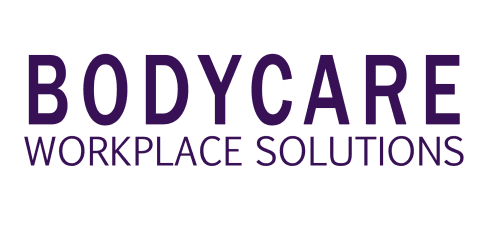How to improve employee productivity through better mental health

For most employers, the goal is to create a healthy and safe environment so that their employees can thrive at work. Now we have all heard this before – healthy employees, mean productive employees. One of the biggest challenges that we face within today’s fast paced business world is addressing mental health in the workplace. How do we start the conversation? What support programs do we have in place? How do we break down the stigma associated with mental health? What can we be being as leaders to improve mental health?
There is a raft of reasons why someone may be struggling with their mental health. Often, our employees experience symptoms of anxiety and depression due to the stressors of life and work. These stressors tend to dominate the thoughts of the individual throughout the working day and have a negative impact on both the individual and the workplace. Now, we can’t change what goes on in our employees’ personal lives, however, we can influence the workplace environment that they spend the majority of their time in.
According to Beyond Blue Support Service, over 90% of employees in Australia believe that mental health is important, yet only half believe that their workplace is actually mentally healthy.
Australians are battling hard against mental health issues, with statistics suggesting that over a million of us struggle with depression annually, and two million with anxiety. Around 1 in 5 Australians will take time off work due to symptoms of poor mental health. It makes for grim reading, but there is good news too. Beyond Blue Support Service points to research indicating that for every dollar employers invest in improving the mental health of their employees, they gain over two dollars in benefits.
Successful businesses need happy and productive employees, so here are our tips for improving employee productivity through better mental health:
1. Keep your door open.
As a manager, it’s important to let your team know that you are there for them and available if they need to discuss any issues that they may be dealing with. Feelings should be shared, conflicts should be discussed, and success should be celebrated. It may sound as though it will take up a lot of your time, but just knowing your door is open for these discussions can make a big difference.
2. Encourage your team to socialise.
Encourage people to get out of the office at lunchtime. Promote inter-team or department working groups to encourage people to mingle with others outside of their immediate team. Create a social committee, these are just a couple of small things that can be implemented without having to fight for a budget to get them up and running.
If you are looking for more structured programs, and have a bit of a budget to play with, consider arranging a weekly yoga, meditation, pilates or strength and conditioning class as a way to improve both mental and physical health while encouraging your employees to socialise with each other.
A team-building event will also promote the social aspect of improving mental health. You can choose to hold an employee-only event with activities that promote teamwork. Or, you can simply have a full-on barbecue cookout with your employees and their families.
It’s all about creating a supportive environment.
3. Take your lunch break and make sure your employees do the same.
When you’ve got deadlines and the pressure is really on, we all feel that pressure to work through lunch or skip breaks. Encourage everyone to take a break and step away from the job while they eat. No one should have lunch over a keyboard. And, that means you, as well. Culture is dictated so much by management — be sure you’re modelling this behaviour.
If possible, set up a weekly or fortnightly meeting to discuss workload so that tasks can be reallocated if the load is becoming too much. These meetings are also a great opportunity to check in with your team to see how they are doing and if necessary address any concerns or issues they may be having.
4. Put a formal workplace mental health program into place.
Truly, mental health support at work is something that should be ongoing. What that looks like is up to you, however offering free counselling sessions to your employees or providing mental health awareness training is a great place to start. If you extend that offer to their immediate families, then you are doing your part to improve their home life as well, which will impact their work performance.
At Bodycare, we offer mental health first aid courses and mental health seminars though can also create a program suited to your organisation’s needs.
6. Become a Mental Health First Aid accredited organisation.
Mental Health First Aid (MHFA) is an internationally recognised, evidence-based training program that teaches participants about common mental health issues, and has been found to increase their knowledge, awareness and skills. MHFA is the help given to someone where there is concern that they may be developing a mental health problem, or experiencing a mental health crisis. Having mental health first aid officers onsite ensures that you have first responders on hand to assist should anyone in your workforce need help.
7. Allow staff to take mental health days.
When someone calls in sick due to poor mental health, they often lie about the real reason for their absence. This doesn’t do anyone any favours. Offer your employees mental health days from work and encourage them to use them.
A mentally healthy workplace will benefit everyone – your employees, your workforce, and your community. When a business cares about supporting the mental health of their employees it also helps attract top talent. The fact is, supporting the mental health of your employees doesn’t just benefit them, it benefits the workplace, and it benefits your bottom line. Try it. And you might be surprised.
Contact our team to discuss the range of mental health training available to improve your employee performance at work.
Sources:
https://www.beyondblue.org.au/media/statistics
https://www.beyondblue.org.au/the-facts
https://www.who.int/mental_health/in_the_workplace/en/
https://www.researchgate.net/publication/257530608_Improving_Employee_Productivity_Through_Improved_Health
https://www.headsup.org.au/training-and-resources/news/2017/09/26/how-addressing-mental-health-at-work-can-improve-productivity[/vc_column_text]


